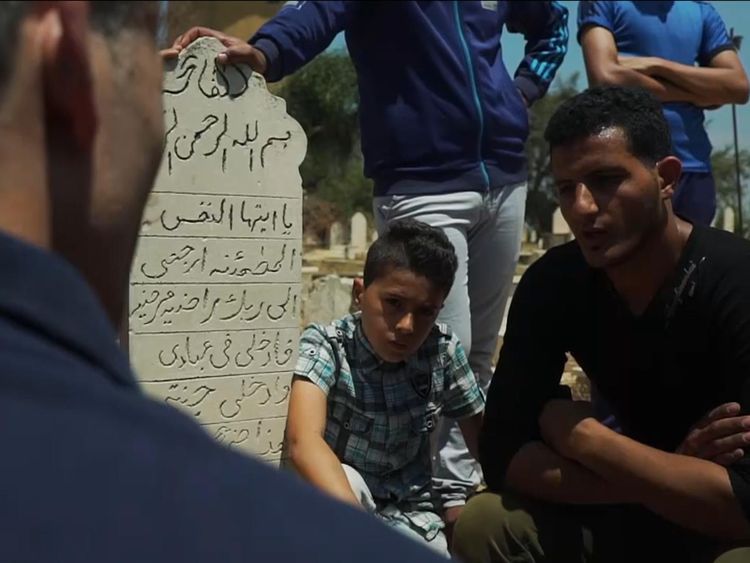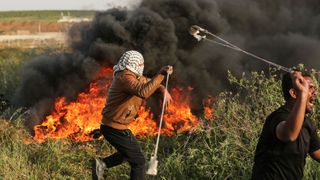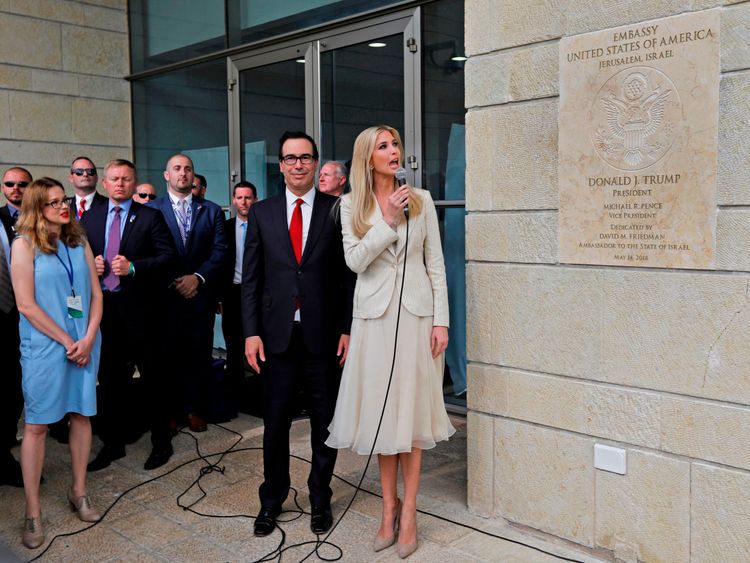Throughout the day Gaza has been burying its dead after yesterday’s bloody protests on the border.
Across the strip the sense of desolation was palpable.
A general strike meant most of the streets were empty, with people staying indoors.
But neighbourhoods were not quiet: muezzins called out from the minarets, demanding people to remember the martyrs who were killed by Israeli snipers.
I went inside one mosque – it was a portrait of grief.
:: Israeli bullets didn’t seem to frighten any Gazans – even children
Friends and family of Mohammed Abu El Ameen wiped tears from their eyes as they said their goodbyes.
The 23-year-old was shot in the eye by an Israeli sniper.
Later at his graveside I spoke to his friend Yazan.
He was with him when he was killed next to the security fence, at about one o’clock in the afternoon.
“I’d like to take revenge but we only have stones and they have guns,” he said.
The message that Israel has sent seems to have been heard for the moment.
Not many protestors turned out on what was supposed to be another big day of demonstrations.
Gaza’s grief though is compounded with a greater feeling of collective melancholy.
This day of misery also marks the ‘Nakba’ – the Arabic word for catastrophe, which befell the Palestinian people when Israel was birthed violently in 1948.
Everywhere in the coastal enclave there are murals telling that story of sorrow and suffering – a people dispossessed and living in refugee camps.
Ahmed Abdullah, 72, was forced into exile with his mother during the war, which saw the Jewish state declare independence.
He was two-years-old at the time. The rest of his family, he says, was killed by Zionist gunmen.
He shows me the deeds to the family’s home, which is just 12 miles away, in what is now Israel.
“This is home, this is land, this is life, a way of life, how can I forget?
“And maybe I forgive but never forget. Never.”
And it is that painful memory of a Palestine lost that is handed down to the new generation of refugees, many of them injured in the clashes with Israel.
But after 70 years this bitter conflict shows no sign of ending.
Most people here feel they’ve been deserted by the world but they still vow to never give up their struggle.
From – SkyNews






